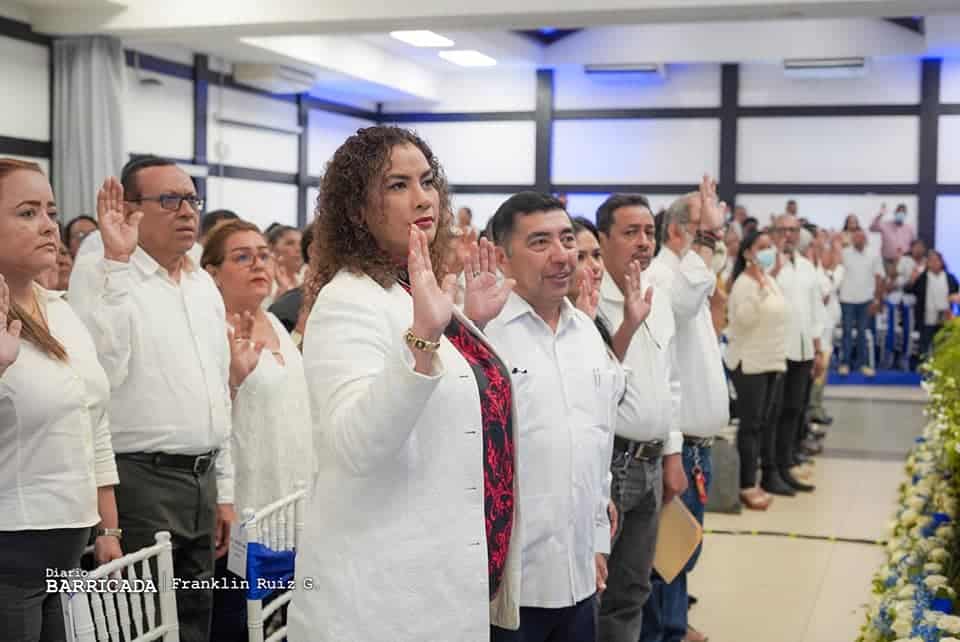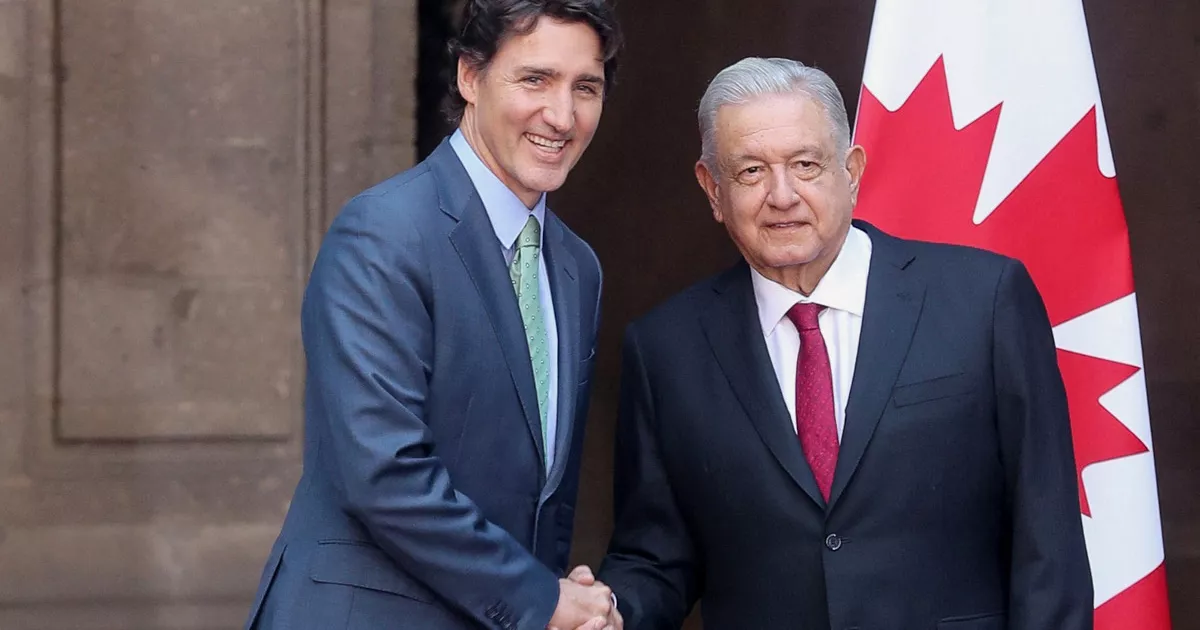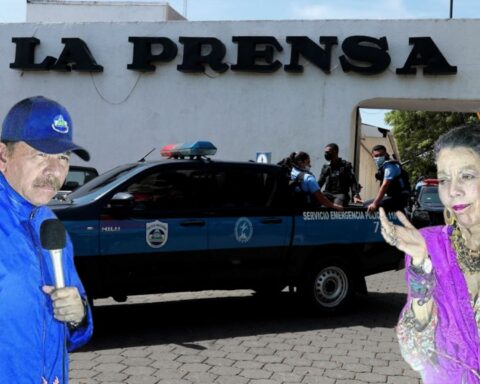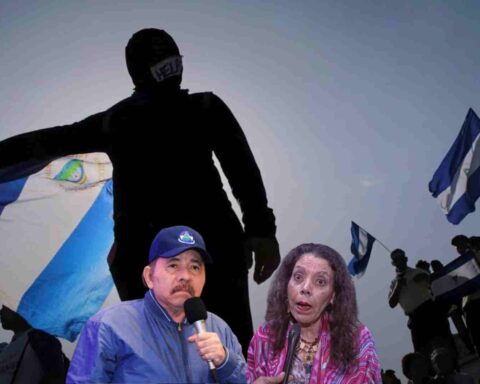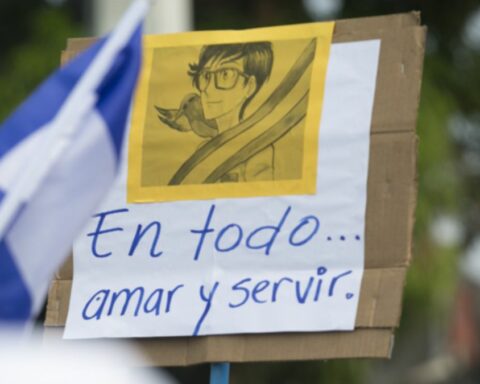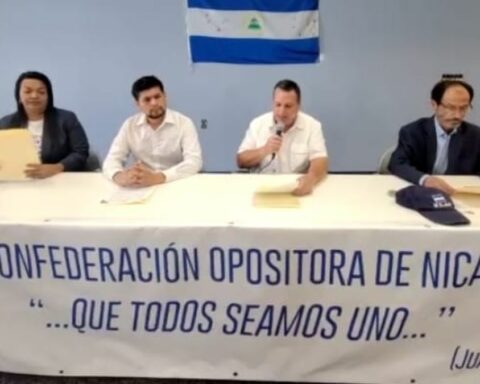The mayors, deputy mayors and councilors that the regime of Daniel Ortega and Rosario Murillo was awarded in the 153 municipalities of Nicaragua, After the “municipal electoral farce” of November 2022, they were sworn in on January 10 by the Supreme Electoral Council (CSE), also under the control of the ruling Sandinista Front.
The swearing in of the municipal authorities was carried out virtually by the president of the CSE, magistrate Brenda Rocha. In the afternoon, the 153 mayors held a private meeting with Orteg,a in which, according to Ortega propaganda, “cThey will consolidate their Sandinista identity.”
The meeting between Ortega and the Sandinista mayors is the latest act in the hallmark of the FSLN’s assault on municipal autonomy in Nicaragua, since from now on all local governments are subordinated to the Executive Branch.
The loss of municipal autonomy had already been announced after the “municipal electoral farce”, when the CSE confirmed the awarding of 100% of the mayoralties to the FSLN, as part of a process lacking in credibility in which the Sandinista Front participated only with its Historical collaborators: Constitutionalist Liberal Party (PLC), Alliance for the Republic (APRE), Nicaraguan Liberal Alliance (ALN), Independent Liberal Party (PLI Alliance) and Yapti Tasba Masraka Nanih Asla Takanka (Yatama).
Silvio Pradoan expert on municipal issues, has warned that the regime decided to assume the costs of governing in all the municipalities of the country, by taking over all the municipalities, after arguing that these results are “politically and demographically impossible.”
At the municipal votes of 2022, the FSLN came to control 141 mayors distributed in 15 departments and two autonomous regions on the Caribbean Coast. Of these, 135 mayoralties were assigned by the CSE in 2017 and another six mayors were usurped in October 2020 and July 2022. Finally, in this process, the 12 mayoralties that were in the hands of collaborationist parties such as the PLC and ALN were awarded. The only opponent, Citizens for Freedom (CxL), was annulled in 2021.
Sworn mayors lack legitimacy
The Urnas Abiertas observatory pointed out that the investiture of the authorities elected in the November 2022 votes is “the consolidation of the totalitarian State at all levels: national, municipal and regional”, since these mayors, deputy mayors and councilors are the result of ” an illegitimate process” marked by 5821 anomalies, irregularities and political violence.
“This represents a serious setback in the advances that had been achieved during the 1980s and 1990s” in terms of Local Development and Municipal Autonomy, lamented Urnas Abiertas in a press release.
The letter also warns that the regime, by awarding itself 100% of the mayoralties, intends to pretend that the local authorities have legitimacy and therefore continue with the institutional processes that should be followed in a democracy, but “these are de facto governments that they are usurping functions because the people have not elected them democratically. The turnout at the polls on November 6 was 17.33% and the abstention rate was 82.67%”, they continue.
Finally, Urnas Abiertas points out that the regime, in addition to strengthening “its authoritarian power”, is exposing the population to more “surveillance, territorial control and the instrumentalization of local power to persecute and violate” elementary rights.
“Recycled” and sanctioned mayors
The municipal authorities invested this January 10 include 118 mayors and deputy mayors that the Sandinista Front recycled in 141 mayors of the country, according to a data analysis carried out by CONFIDENCIAL.
The list of eternal mayors is headed by the three FSLN political operators in Estelí, Matagalpa and Jinotega, qualified as “super mayors” and sanctioned by the United States Government for directing the Ortega repression and massacre in their departments in 2018.
Francisco Valenzuela Blandón, from Estelí, and Sadrach Zeledón Rocha, from Matagalpa, governed for the first time in their municipalities after being elected in the first municipal elections in Nicaragua in 2000. Later, they left local power in 2004, because consecutive re-election it was not allowed. They continued their quota of power as deputies of the National Assembly and political secretaries of the FSLN. Then, they returned to the positions of mayors in 2008 and have remained there ever since, under the protection of the unconstitutional re-election sentence with which Ortega also imposed his re-election.
The shortlist of “super mayors” sanctioned the complete Leónidas Centeno Rivera, who governs Jinotega from 2008 to date, and seeks a fourth consecutive term in power.
In November 2021, after that year’s electoral farce, the United States issued new sanctions against FSLN operators. The mayors of Matagalpa, Estelí and Jinotega were included in the list of sanctions, accusing them of committing human rights abuses in 2018. The United States maintained that Zeledón is directly involved in the repression; that Valenzuela’s office ordered snipers to target the protesters in Estelí, and that Centeno is linked to the bodies that acted against the protesters.
In December 2022, the Government of United Kingdom it also sanctioned the mayor Zeledón and his deputy mayor since 2017, Yohaira Hernández Chirino, for violating the human rights of the residents of the municipality of Matagalpa.
Elected by 17.3% of voters
The citizen observatory Urnas Abiertas indicated that during the 2022 municipal votes there was an abstention rate of 82.7%. This level of abstention exceeds that observed in the “electoral farce” of 2021, which was 81.5%.
The massive abstention in the municipal votes made it easier for the ruling Sandinista Front to win the last twelve Nicaraguan mayoralties in which the red and black flag did not fly. The official data from the Supreme Electoral Council (CSE) – which lack credibility and are not auditable – show that, in these dozen municipalities, there were fewer voters than in the 2017 municipal elections.
In places like Old CityFor example, where the FSLN obtained 1,663 votes in 2017 and was defeated that year by the PLC with 2,248 votes, now it “won” the mayoralty with 1,683 votes, that is, only 20 votes more than five years ago.
According to the Electoral Power – under absolute control of the FSLN – in 2017 there were 121,414 valid votes in those twelve municipalities, and in 2022 93,170 voted, that is, 28,247 fewer votes, which is equivalent to 30.3%.
The new municipalities in the hands of the FSLN are: Camoapa, San José de los Remates, Santo Domingo, La Trinidad, Ciudad Antigua, Bocana de Paiwas, El Tortuguero, Muelle de los Bueyes, La Cruz de Río Grande, Mulukukú and Wiwilí-Jinotega. formerly administered by the Constitutionalist Liberal Party (PLC) and San Francisco de Cuapa, formerly in charge of the Nicaraguan Liberal Alliance (ALN), which in recent years have lent themselves as collaborationist parties of the regime.
The municipality where the highest abstentionism was registered was in Wiwilí-Jinotega, a mayor’s office that in 2017 was won by the PLC, but in 2020 it was usurped by the FSLN. There, the total valid votes went from 22,347 in 2017 to 12,946 in the recent municipal electoral farce. The difference is -9401 votes.
The Open Ballot Box citizen observatory indicated that, during these municipal votes, an abstention rate of 82.7%, that exceeded the level observed in the “electoral farce” of 2021, which was 81.5%. However, the CSE assured that abstention was 42.9%.
Open Polls also documented 5,821 anomalies during the process, including arbitrary arrests, harassment, threats, physical assaults, and carting of voters to the Voting Centers.

